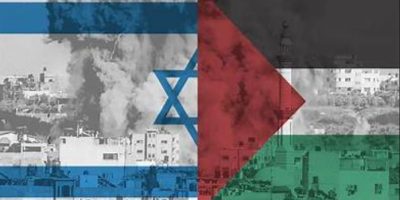Beyond Realism: Resolving Pakistan’s Internal Balance of Power Dilemma

Afnan Wasif
In international relations, the concept of the balance of power is a foundational tenet of Realism, a school of thought that sees the international system as inherently anarchic, where states act primarily in their self-interest to ensure survival. This balance ensures that no single state becomes dominant, preserving the sovereignty of all. The theory posits that states, seeking to protect themselves from dominance by others, engage in power-balancing behaviors—forming alliances, building military capabilities, and countering the influence of rising powers. Yet, while this concept is designed to maintain stability, it also fosters a perpetual state of competition, arms races, and security dilemmas.
Though traditionally applied to international relations, this realist framework strangely can also be seen operating within the domestic political landscape of Pakistan, specifically in the relationship between the military and political institutions. Both entities, bound by the dynamics of power, seem caught in a similar balancing act, where each fears dominance by the other, inadvertently destabilizing the very system (democracy) they aim to preserve.
In Pakistan, the military holds a unique place in the national power structure. Despite being constitutionally subordinate to civilian authority, it has historically wielded significant influence over governance, often acting as a political actor in its own right. From direct military coups to indirect sway over domestic and foreign policies, the military has played a central role in the state’s evolution. On the other hand, political institutions, particularly civilian governments, often find themselves in a precarious position, needing to assert their authority without antagonizing the military establishment. This precarious dance mirrors the classic balance of power seen in international relations.
The political leadership in Pakistan, much like states in the international system, acts to preserve its sovereignty. The military, representing a highly organized and powerful institution, similarly seeks to protect its interests. The result is a cyclical power struggle—a quest for dominance that is unlikely to reach a definitive conclusion. Like international states locked in a perpetual arms race, the political and military institutions in Pakistan are engaged in a tug of war, each striving to counterbalance the other to maintain equilibrium.
This quest for balance, however, does not lead to stability. In fact, it breeds insecurity on both sides. Political institutions, fearing the military’s encroachment on governance, often take steps to curb its influence, sometimes leading to policies that alienate the military establishment. On the other hand, the military, perceiving threats to its authority and privileges, seeks to maintain a certain level of political involvement, which in turn exacerbates tensions.
This insecurity paradox is similar to the security dilemma in international relations, where efforts by one state to increase its security (e.g., through military build-up) are interpreted as threats by others, leading them to enhance their own security measures. In Pakistan, every attempt by civilian governments to assert control over the military is viewed with suspicion by the armed forces, leading to heightened tensions and, in extreme cases, intervention. Conversely, political leaders are wary of the military’s power, fearing that unchecked authority could erode democratic governance and undermine civilian rule.
The implications of this dynamic are significant. As in international relations, where the balance of power often results in heightened risks of conflict, the tug of war between Pakistan’s political and military institutions creates an environment of instability and insecurity. The focus on balancing power distracts both entities from their primary objectives—serving the state and its people.
The solution to this problem, however, is clear. Pakistan’s Constitution provides a framework that clearly delineates the roles and responsibilities of each institution. The military is a subordinate institution, meant to serve under the direction of the civilian government, which is elected by and accountable to the people. The political leadership, representing the will of the people, must be allowed to govern without undue interference from the military.
Realist theory suggests that the balance of power is a necessary evil in an anarchic international system, but in the context of a nation-state like Pakistan, this competition is both unnecessary and harmful. The military and political institutions are not rival states locked in a power struggle; they are different entities within the same system, both ultimately serving the same state. Recognizing this reality is crucial to breaking the cycle of insecurity and power struggle.
By adhering to the constitutional order, this balance of power dynamic can be resolved. The political leadership must have the authority and competence to govern, and the military must accept its role as a protector of the state, not a competitor for political power. In doing so, Pakistan can overcome the cyclical deadlock that has long plagued its civil-military relations, fostering a more stable, secure, and prosperous future for the nation.
Ultimately, the recipe for resolving this power struggle is already written in Pakistan’s Constitution. Abiding by it, both institutions can focus on their respective roles, leading to a smoother, more functional governance system where power is not something to be feared but exercised responsibly for the greater good.
Related News

Afghanistan’s Unhealed Wound
Hashim Raza Adv/Peshawar, LLM (UK) Raza For more than four decades, Afghanistan has remained a bleedingRead More

GPB: US Jewish New plan of Palestinians genocide
Shamim Shahid At the moment, the US President Donald Trump’s initiative GHAZA PEACE BOARD isRead More


Comments are Closed